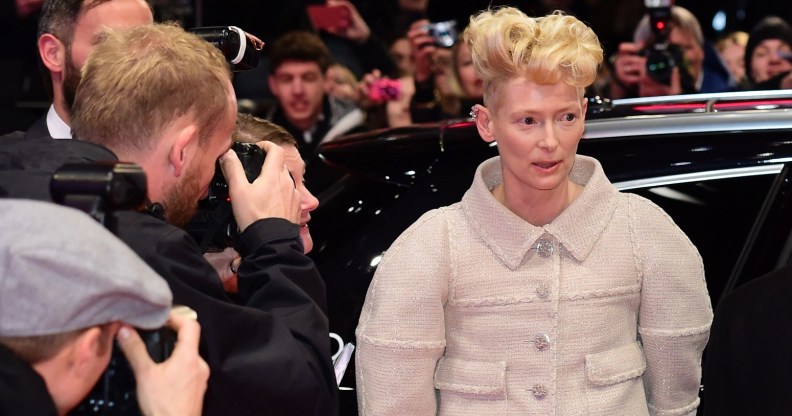Tilda Swinton is up for a gay superhero film

Doctor Strange star Tilda Swinton is holding out for a gay superhero film.
The legendary artist and actress, best known for her roles in Michael Clayton and We Need To Talk About Kevin, is set to appear as The Eternal in upcoming Marvel film Doctor Strange.
In an interview with Out Magazine, Swinton addressed some of the criticism about the film’s race-flipping – with her taking on the revamped role of an Asian comic book character.
Responding to critics, she said: “Anyone speaking up for a greater accuracy in the representation of the diversity of the world we live in has me right beside them.
“As someone who has worked from the beginning as an artist within a queer aesthetic, the urgency of that voice is always going to be welcome.
“At the same time, the film Marvel has made—in which they created a part for which I was not bad casting, in actual fact—is a departure from the source material in more ways than one.
“Ironically, their casting is positively diverse in this case: The Ancient One in this film was never written as the bearded old Tibetan man portrayed in the comics. Baron Mordo, a Caucasian Transylvanian in the graphic novels, is here played by Chiwetel Ejiofor. Benedict Wong plays a newly expanded and significant role as Wong, who in the comics is a mini-minor character.
“I believe in Marvel’s wholehearted commitment to creating a diverse and vibrant universe, avoiding stereotype and cliché wherever possible in a determination to keep things fresh and lively.”
She added: “We are also still looking forward to our first gay Marvel superhero, naturally. Let’s hope that’s only a matter of time.”
The artist also spoke about “the nature of queerness” in the feature.
She said: “My father always called me ‘contrary.’ Whatever that meant to him, I take that to signify a general attitude of openness to new things. The most wonderful luxury is being contrary in the company of other contrarians.
“I have lived for my entire adult life closely integrated into a queer aesthetic, occasionally in situations where I may have been—for months at a time – either the only cis woman present or the only person in a heterosexual relationship, without particularly questioning why it might be strange for me to be included.
“The issue of sexuality is a secondary one to the issue of spirit. My analysis is, as my grandmother would say, ‘Horses for courses,’ meaning, each to their own.
“Queerness is an attitude that, when acknowledged as shared, can bring more people together than could ever be divided by it being used as a term of rejection.
“I think this attitude is what I carry above my head, without any effort or influence. I think it is a form of semaphore that my colleagues recognize as a homing beacon—and I am proud to say I think it was probably blinking away even in my cradle.”
Check out the full interview here, and in November’s issue of Out

